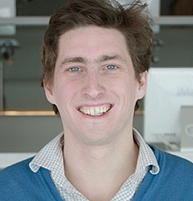Correll lands NASA grant for space food research
Nicolaus Correll, an assistant professor at the Department of Computer Science at the University of Colorado Boulder, is one of 10 awardees of NASA’s inaugural Space Technology Research Opportunities for Early Career Faculty. The agency will provide grants of as much as $200,000 per year for as long as three years in support of Correll and other honorees and their research in specific, high-priority technology areas.
The honorees will conduct research in areas closely aligned with NASA’s Space Technology Roadmaps and priorities identified by the National Research Council. These priorities include extending and sustaining human activities beyond low Earth orbit, exploring the evolution of the solar system and potential for life elsewhere, and expanding our understanding of Earth and the universe.
Correll’s research focuses on growing food in space that will not only allow extended lengths of future missions in space, but also significantly increase astronauts' well-being. His proposed research focus on the fundamental sensing and manipulation challenges of automating parts of the operations of in-space greenhouses to facilitate tele-operation. Specifically, he is investigating machine learning techniques to extract the growth stage of plants from a combination of volumetric, color, and infrared data, and novel algorithms for manipulating flexible structures using two arms, much like a human gardener does when picking a fruit.
NASA’s Early Career Faculty efforts are an element of the agency’s Space Technology Research Grants Program. It is designed to accelerate the development of technologies originating from academia that support the future science and exploration needs of NASA, other government agencies and the commercial space sector. Other career efforts will develop technologies to automate the production of food in space and investigate and test advanced wastewater recovery technologies. These efforts also will look to develop robust timekeeping technologies that enable more precise landing and autonomous rendezvous in space, and formulate new ultra-lightweight materials with properties that can be tailored.


